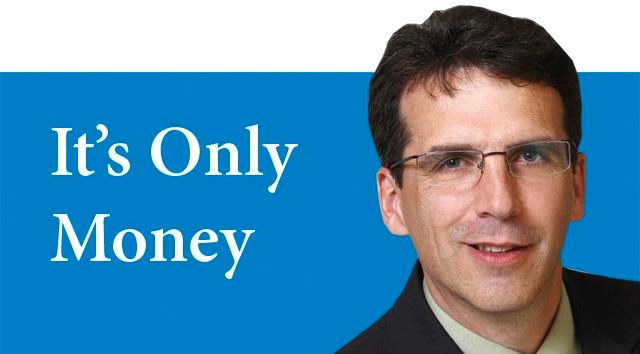As we approached the close of a very successful high school career, it was important to my son - and his parents - that he should be given every opportunity to attend the university of his choosing, which happened to be in the U.S.
This meant that we had to get up early one Saturday morning about four years ago and drive to Quesnel so he could take a U.S.-based college entrance exam there at the CNC campus. We drove in the dark, through a snowstorm and arrived to two or three inches of fresh powder and an eerily quiet campus building.
The door was locked, but after we rang a buzzer, the appointed proctor responded and let us in, showing us to the exam location which my son took up completely on his own.
I sat in the spacious atrium, also completely alone, and gazed at the impressive structure that the college of New Caledonia has built there. It was barely dawn and the snowstorm continued to blow outside, now a little more visible in the greyish-blue morning light.
Sitting at a large pane window overlooking a picturesque green space, I saw a magnificent mule deer buck meandering through the storm at a leisurely pace right next to me outside the building. The ungulate had a large rack, four points on each antler, like the grown-up Bambi of Disney fame, a strong, muscular build, and the look of dignity about him.
He took my breath away, and I watched the beautiful animal until he had wandered out of sight just a moment or two later. It was an instant of stunning, quiet majesty.
The symbolism of the lone spectacular mule deer was not lost on me. A few metres away in the other direction, my pleasant, unassuming boy was also in a class of his own (literally), writing two back-to-back exams that would give the jitters to a freezer full of dead guys, but was doing so with the sort of grace and calm that we had come to know him for. He was in good spirits by the time he had finished the exams, and although mildly anxious to get his results, he was never in doubt that he would do as well as he did.
A few months later we said goodbye to our precious 17-year-old boy, and sent him off, a year earlier than we should have, to become a man at a university too far away for us to visit. Like his three older sisters before him, he resolutely pressed into the wind and out of our home, adjusting to life without his adoring parents, too well for our sensitive egos to absorb.
Having been so preoccupied with the life of coaching, training, providing, cooking, cleaning, teaching, nurturing and loving our kids, we were ill-prepared for their departure. I mean, we were anxious for them to move on and succeed, but never expected them to be so capable of not coming home.
Likewise, with business people, the everyday life of building, saving, resuscitating, restructuring, rebranding, and reproducing a business process is nigh unto all-consuming. So after several decades, when the day comes to parcel it off to someone else, it might feel more like an amputation than a hand-off.
You've worked hard to get your business to where it is today. One day - whether in one year, 10 years, when you pass away, or at some other time - someone else will run this business. If you'd like to decide in advance who that "someone else" will be, you need a succession plan.
If you don't have such a plan, you're not alone. Many business owners don't adequately plan their succession, if at all. There are many reasons for this complacency - from their reluctance to "let go," to fear of creating family disharmony.
Ironically, the best time to create a succession plan is when you're too busy managing your growing business. Planning a business exit can be emotional - there are often personal and family dynamics that may conflict with a business's well-being. For this and other practical reasons, planning an exit requires an owner to think strategically, preferably with a professional's help.
The purpose of this type of planning is to create a clear exit path that is simple yet effective in meeting personal and business goals while preserving family harmony during what is often an emotional and conflict-triggering process.
No two families are the same and a plan has to address a family's unique situation. While this is true, proper planning strategies make the process significantly more effective.
Thus we begin a series on the complex world of succession planning, covering several strategies to facilitate the process, including: whether or not to pass on the family business to children; tools to manage unnecessary conflicts; protecting business continuity during transition (often referred to as "contingency planning"); and a framework to start planning and to stay in control.
Stay tuned.
Where opinion and commentary is given, it is that of the author, and not necessarily RBC Dominion Securities Inc. Opinions are subject to change without notice and are provided in good faith but without legal responsibility.
Mark Ryan is an advisor with RBC Wealth Management, Dominion Securities (member CIPF) and can be reached at [email protected] or 250-960-4927.



